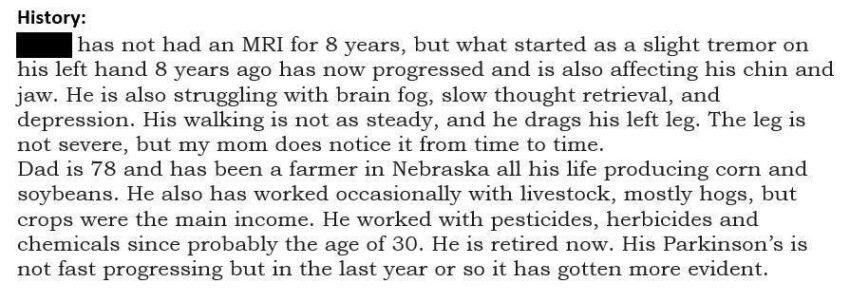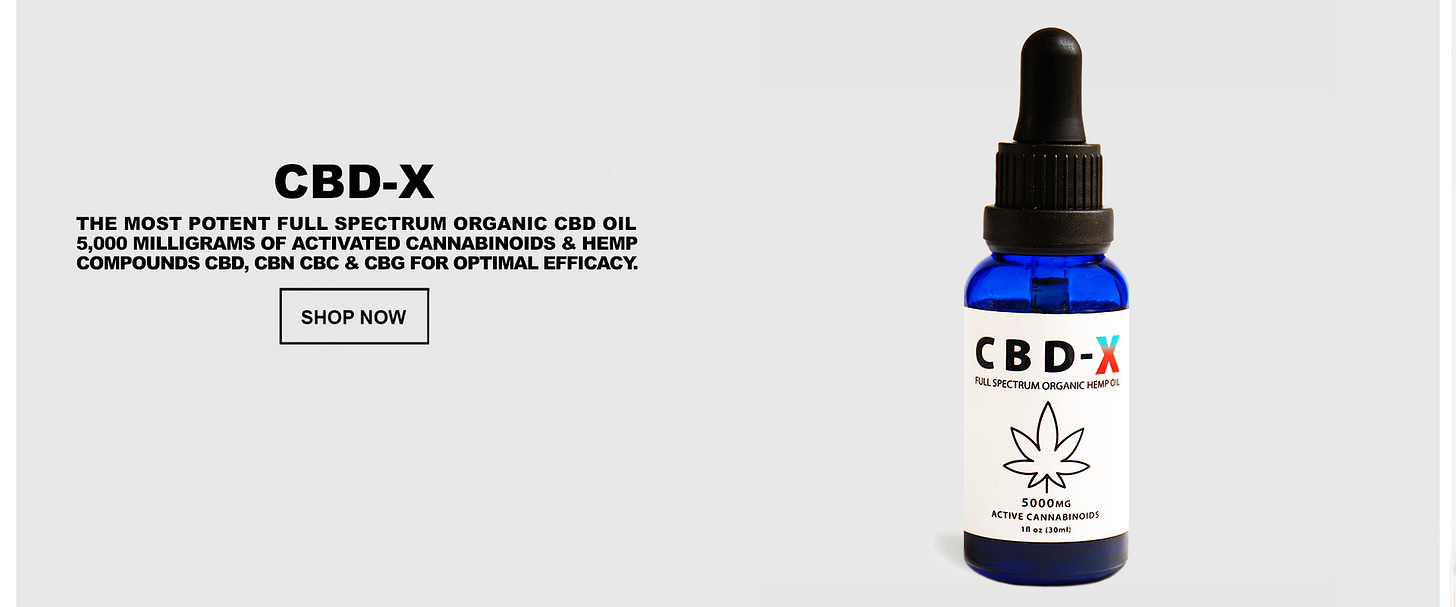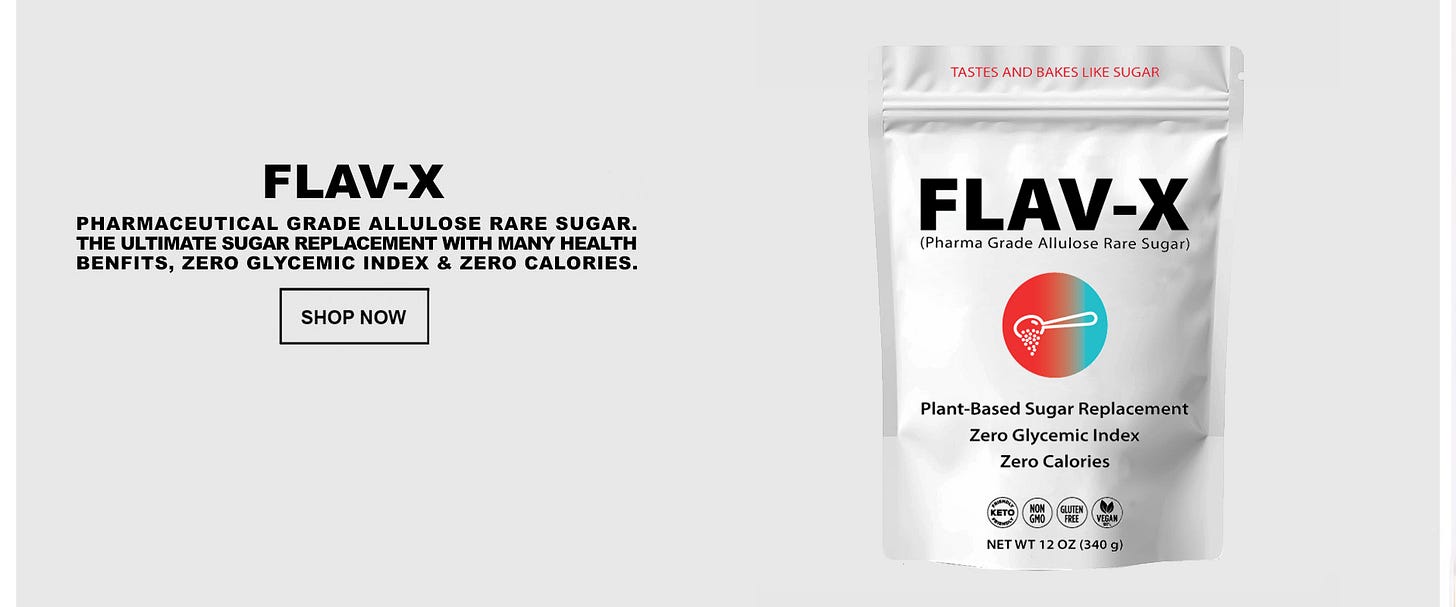In this Substack’s ongoing anecdotal repurposed drug crowdsourcing series comes another pair of absolutely incredible healing experiences.
The first success story further corroborates this Substack’s recent article on Ivermectin curing various neurological conditions…
…and comes courtesy of Dr. Makis:
NEW ARTICLE: IVERMECTIN and FENBENDAZOLE Testimonial – 78 year old Nebraska PARKINSON’S DISEASE patient of 8 years, cured after 4 months!
My best Parkinson’s Disease & Ivermectin testimonial yet!
77 year old Nebraska Parkinson’s Disease patient of 8 years
We started in March 2025
Ivermectin 1mg/kg/day increasing to 1.5mg/kg/day
Fenbendazole 888mg/day
From patient’s daughter: “He has been on the protocol you gave him for four months”
“Today he went to the neurologist…and unbelievably the doctor told my dad that he is questioning if my dad even has Parkinson’s anymore…he told my dad he looks healthier than he’s ever looked!” “He doesn’t shuffle or slump over like he used to and his shakes are minimal!!! My dad was just speechless!”
I run the world’s largest Ivermectin Cancer Clinic.
But I have dozens of Neurology patients as well.
Alzheimer’s
Parkinson’s
Multiple Sclerosis
Ivermectin and Fenbendazole and making major inroads into Neurology as well.
Read the story for yourselves 😀
Our next success story is no less impressive:
Fenbendazole Can Cure Cancer presents Case Reports of people who have treated their own cancers along with other articles to help understand how fenbendazole works to treat cancer. Previous articles covering other cancers are in the Archives link.
This Case Report of PC, as told by his wife, documents the case of a 69-year-old male, with Stage 4 metastatic melanoma who achieved a complete metabolic response. PC initiated treatment with fenbendazole, resulting in a significant partial response, including the resolution of multiple metastatic sites. The subsequent addition of combination immunotherapy (Nivolumab/Relatlimab) led to the complete resolution of all detectable disease. This case highlights a successful therapeutic sequence, demonstrating the profound anti-neoplastic effects of fenbendazole and its synergy with checkpoint inhibitors in achieving a durable, cancer-free outcome.
Clinical Timeline: Diagnosis, Treatment, and Response
Jan 2023: Diagnosis: Stage 4 metastatic melanoma confirmed. Widespread disease in clavicle, aorta, abdomen, leg, mediastinum, and a suspicious brain lesion.
Initiated Fenbendazole: 222 mg daily. PC begins self-directed therapy.
May 2024: PET-CT: Resolution of clavicular and mediastinal metastases. Persistent para-aortic disease (SUV max 7.04). Unremarkable brain CT.
Fenbendazole 222 mg daily. Significant partial response to fenbendazole monotherapy.
June 8, 2024: Genetic testing confirmed NRAS mutation, CDKN2A gene )p.M53l variant).
June 10, 2024: Blood Panel: Transient elevation of liver enzymes (ALT/AST).
Fenbendazole 222 mg daily. Liver enzyme elevation likely due to tumor lysis; therapy continued.
June 20, 2024: Dose Adjustment: Fenbendazole increased to 444 mg daily (222 mg twice per day). Fenbendazole Dose Escalation. Dose increased to drive further therapeutic response.
Sept 17, 2024: PET-CT: Resolution of cutaneous leg lesion. Further reduction in para-aortic node (SUV max 5.89). No new disease.
Fenbendazole 444 mg daily. Continued favorable response.
Blood Panel: Liver enzymes returned to normal range.
Fenbendazole 444 mg daily. Normalization confirms the transient nature of the enzyme elevation, ruling out hepatotoxicity.Sept 20, 2024: Immunotherapy Initiated: Began combination therapy with Nivolumab/Relatlimab (monthly infusions).
Immunotherapy Introduced. Standard-of-care immunotherapy added to consolidate gains.
Jan 10, 2025: CT & PET Scans: No nodal or metastatic disease detected. Para-aortic node no longer avid (SUV max 2.3). Clear brain scan.
Immunotherapy complete. Complete Metabolic Response Achieved.
May 15, 2025: Follow-up: PC is active, in excellent health, and remains cancer-free. Immunotherapy-induced colitis fully resolved. No active cancer treatment.
Durable Complete Response.
Case Presentation and Clinical Course
Initial Diagnosis and Fenbendazole Monotherapy: In January 2023, a 69-year-old male (PC) with a 35-year history of surgically managed melanomas was diagnosed with Stage 4 metastatic disease. PET-CT imaging confirmed extensive metastases involving the left supraclavicular fossa, mediastinal lymph nodes, para-aortic arch, abdomen, a cutaneous leg lesion, and a brain lesion of high concern. PC commenced self-administered fenbendazole at 222 mg daily. Over the next 16 months, he achieved a significant partial response on fenbendazole monotherapy. A PET-CT in May 2024 confirmed the complete resolution of metastases in the left supraclavicular fossa and mediastinal nodal stations.
Dose Escalation of Fenbendazole and Continued Response: In June 2024, a routine blood panel revealed a transient elevation in liver enzymes (ALT/AST). This was interpreted as a consequence of tumor lysis rather than drug toxicity. The fenbendazole dose was confidently increased to 444 mg daily. By September 2024, follow-up imaging demonstrated further disease regression, including resolution of the cutaneous leg lesion and a decrease in the metabolic activity of the remaining para-aortic lymph node (SUV max reduced from 7.04 to 5.89). Concurrently, his liver enzymes had normalized, validating the decision to continue and escalate the fenbendazole dose.
Introduction of Immunotherapy and Complete Response: With the majority of the disease burden eliminated by fenbendazole, combination immunotherapy (Nivolumab/Relatlimab) was introduced in September 2024 to target the residual disease. PC experienced a significant adverse event of immunotherapy-induced colitis, which persisted for approximately eight months before resolving. Follow-up scans in January 2025 revealed a complete metabolic response. All evidence of nodal or metastatic melanoma was absent. The metabolic activity in the previously persistent para-aortic lymph node had fallen to background levels (SUV max 2.3). As of May 2025, PC remains in excellent health, active, and cancer-free.
Conclusions: The Foundational Role of Fenbendazole
The clinical timeline establishes that fenbendazole monotherapy was responsible for the substantial initial tumor debulking. By the time immunotherapy was introduced, the majority of the metastatic burden had resolved, indicating fenbendazole acted as the primary therapeutic agent in this case. This initial response likely created a more favorable tumor microenvironment for immunotherapy. By inducing immunogenic cell death through mechanisms such as microtubule disruption, fenbendazole enhanced the presentation of tumor neoantigens, effectively “priming” the remaining disease for a robust and complete response to checkpoint inhibition.
Tumor Lysis as the Potential Cause of Transient Liver Enzyme Elevation
The transient elevation of liver enzymes is attributed to the metabolic stress of processing significant tumor lysis, a phenomenon observed in other cases of effective fenbendazole treatment. The resolution of the transaminitis (liver enzyme fluctuation), even after a fenbendazole dose escalation, coincided directly with the reduction in overall tumor burden. This temporal relationship suggests that the enzymatic rise was a consequence of therapeutic efficacy, not drug-induced liver injury. The return of AST/ALT to within normal limits despite continued fenbendazole administration supports the assertion as well.
This case documents a complete and durable metabolic response in a patient with advanced metastatic melanoma. A sequential treatment protocol, initiating with fenbendazole to debulk the tumor followed by consolidation immunotherapy, proved to be a highly effective strategy. This outcome underscores the potent anti-neoplastic capability of fenbendazole and its synergistic potential with modern immunotherapies.
PC’s wife reports that he is presently a “box of birds” after coming through this experience in successfully eradicating his cancer.
This last case study presents three very critical points:
-
The fenbendazole dose may need to be increased in certain cancer cases that do not initially respond to the lower dose
-
Liver enzyme elevation is a net/net positive result of the treatment as it reflects cancer disintegration, and not actual liver damage; in other words, elevated liver enzymes shows that the fenbendazole treatment is actually working, and should not be stopped
-
The addition of ivermectin to fenbendazole should always be considered, as there is only upside to this synergistic combination therapy, with zero risk
The following represents not just the ‘holy grail’ cancer cure, but may also be the most effective treatment approach for various neurological diseases as well as the broad range of “vaccine” adverse events:
New & Improved Synergistic Joe Tippens Protocol
-
Tocotrienol and Tocopherol forms (all 8) of Vitamin E (400-800mg per day, 7 days a week). A product called Gamma E by Life Extension or Perfect E are both great.
-
Bio-Available Curcumin (600mg per day, 2 pills per day 7 days a week). A product called Theracurmin HP by Integrative Therapeutics is bioavailable.
-
Vitamin D (62.5 mcg [2500 IU] seven days a week).
-
CBD oil (1-2 droppers full [equal to 167 to 334 mg per day] under the tongue, 7 days a week) CBD-X: The most potent full spectrum organic CBD oil, with 5,000 milligrams of activated cannabinoids and hemp compounds CBD, CBN & CBG per serving.
-
Fenbendazole (300mg, 6 days a week) or in the case of severe turbo cancers up to 1 gram
-
Ivermectin (24mg, 7 days a week) or in the case of severe turbo cancers up to 1mg/kg/day
-
VIR-X immune support (2 capsules per day)
-
Removing sugars and carbohydrates (cancer food) from your diet and replacing table sugar with a zero glycemic index, zero calorie, keto friendly rare sugar like FLAV-X
Do NOT comply.
Click this link for the original source of this article.
Author: 2nd Smartest Guy in the World
This content is courtesy of, and owned and copyrighted by, https://2ndsmartestguyintheworld.substack.com and its author. This content is made available by use of the public RSS feed offered by the host site and is used for educational purposes only. If you are the author or represent the host site and would like this content removed now and in the future, please contact USSANews.com using the email address in the Contact page found in the website menu.
















